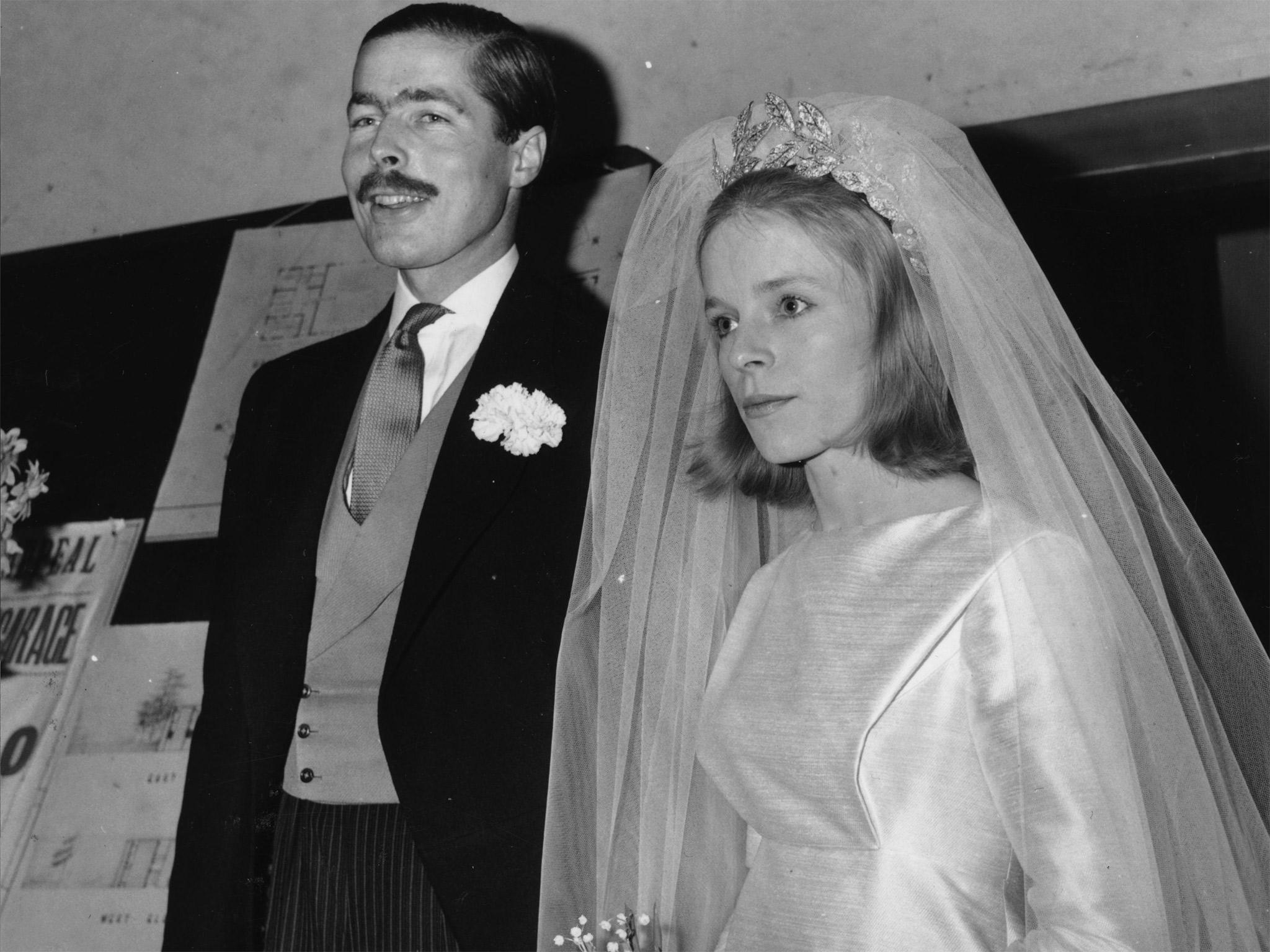Lady Lucan killed herself with cocktail of drugs and alcohol after self-diagnosing Parkinson's disease
Inquest hears that the estranged wife of Lord Lucan had come to believe she had Parkinson's disease - despite not having been diagnosed by a doctor

Your support helps us to tell the story
From reproductive rights to climate change to Big Tech, The Independent is on the ground when the story is developing. Whether it's investigating the financials of Elon Musk's pro-Trump PAC or producing our latest documentary, 'The A Word', which shines a light on the American women fighting for reproductive rights, we know how important it is to parse out the facts from the messaging.
At such a critical moment in US history, we need reporters on the ground. Your donation allows us to keep sending journalists to speak to both sides of the story.
The Independent is trusted by Americans across the entire political spectrum. And unlike many other quality news outlets, we choose not to lock Americans out of our reporting and analysis with paywalls. We believe quality journalism should be available to everyone, paid for by those who can afford it.
Your support makes all the difference.Lady Lucan, the estranged wife of the world’s most notorious fugitive, killed herself by taking a cocktail of drink and drugs after diagnosing herself with Parkinson's disease, an inquest heard.
A pathologist concluded that the 80-year-old aristocrat died from respiratory failure caused by a lethal dose of drugs and alcohol.
Known formally as Veronica, the Dowager Countess of Lucan, Lady Lucan was one of the last people to see Lord Lucan - the 7th Earl John Bingham - alive before he became the most famous fugitive in the world.
She came across her estranged husband moments after he killed 29-year-old nanny Sandra Rivett in the darkened basement of the family’s Belgravia home, on the night of Thursday 7 November 1974.
Lucan is widely believed to have bludgeoned the nanny to death in the darkness after mistaking her for his wife, with whom he was engaged in a bitter custody battle over their three young children.
When he saw his wife as he came up the basement stairs, Lucan battered her with the lead piping he had used to kill the nanny. Lady Lucan, however, was able to escape – according to some accounts because she stopped the earl in his tracks by squeezing his testicles.
As the fugitive’s notoriety grew amid police failure to catch him and endless reports of sightings from all over the world, some came to suspect that Lady Lucan must have known the fate of her husband – despite her emphatic insistences to the contrary.

Tuesday’s inquest, which was attended by her daughter Camilla Bingham, was told that Lady Lucan had books on assisted dying and had written in her diary about how to commit suicide if she became frail.
She was found dead by police who smashed a window to break into her two-storey terraced town house in Belgravia, central London, at around 5.30pm on September 26 last year.
Police discovered her lifeless body dressed in her night clothes with a small graze on her forehead.
There was an unmarked bottle under her body which had just one pill left inside.
The inquest heard that one of the drugs in her system was not normally prescribed by British doctors. Police did not know how she had obtained the powerful substance.
The inquest heard that concerns about Lady Lucan’s safety were first raised by her friend David Davies, who became worried after she missed their regular meeting in St James' Park, London.
Mr Davies became concerned she might have killed herself because the pair had discussed assisted suicide if they had a terminal illness or a degenerative disease.
The inquest heard that Lady Lucan had come to think she had developed Parkinson's after she noticed a tremor in her right hand, lost her sense of smell, and started to feel tired and anxious while suffering from insomnia and forgetfulness.
In a diary entry just weeks before she died, Lady Lucan detailed her suspected symptoms.
The inquest, however, was told she had not been diagnosed by a doctor.
In another diary entry on August 5 last year, about six weeks before her death, Lady Lucan listed potential suicide items copied from four books about taking one’s own life that were found in her house.
Westminster Coroner's Court also heard that Lady Lucan had visited a meeting on assisted suicide with Mr Davis the previous year, and that she had also complained to her friend of having money troubles.
Mr Davies, who had known Lady Lucan for two years, told the inquest: "We both discussed how to end our lives but only if we developed a degenerative or terminal illness or became reliant on other people.
"But there was nothing to suggest she was considering this and she seemed cheerful the last time I saw her."
The court heard Lady Lucan had gone through the final edit of her autobiography a month before she died with publisher Pamela McCleave, and hoped the book would come out before Christmas.
Coroner Dr Fiona Wilcox recorded a verdict of suicide.
She said: "When I consider the evidence in this case it's clear that Veronica Mary Lucan has for some time been considering how she could, if she was to take her own life.
"There's no evidence of suffering from a mental illness. It's clear there was nothing to suggest any third party involvement or forced entry or disturbance or disruption.
“Evidence from her diary seemed to suggest she had concerns she was suffering from Parkinson's disease in the weeks and months leading up to her death.
“Although there is no suicide note there are diary entries in which she details these thoughts.
"I'm entirely satisfied that suicide is the final conclusion."
After the hearing her daughter Camilla Bingham, declined to comment.
In one of her last interviews, given in June last year, Lady Lucan said she suspected that her husband had thrown himself under the propellers of a Newhaven-Dieppe cross-Channel ferry.
She said: “I would say he got on the ferry and jumped off in the middle of the Channel in the way of the propellers, so that his remains wouldn’t be found – quite brave, I think.”
In an earlier interview she said she doubted her husband had gone on the run abroad.
“He was not the sort of Englishman to cope abroad,” she explained. “He likes England, he couldn’t speak foreign languages and he preferred English food.”
In later life, Lady Lucan became estranged from her children for decades. She had five grandchildren, she once told an interviewer, and hadn’t met any of them.
But as she reflected on her life in June, three months before her death, she insisted she wasn’t lonely.
“I don’t feel so now,” she said, “Although I was lonely in my marriage.”
Join our commenting forum
Join thought-provoking conversations, follow other Independent readers and see their replies
Comments